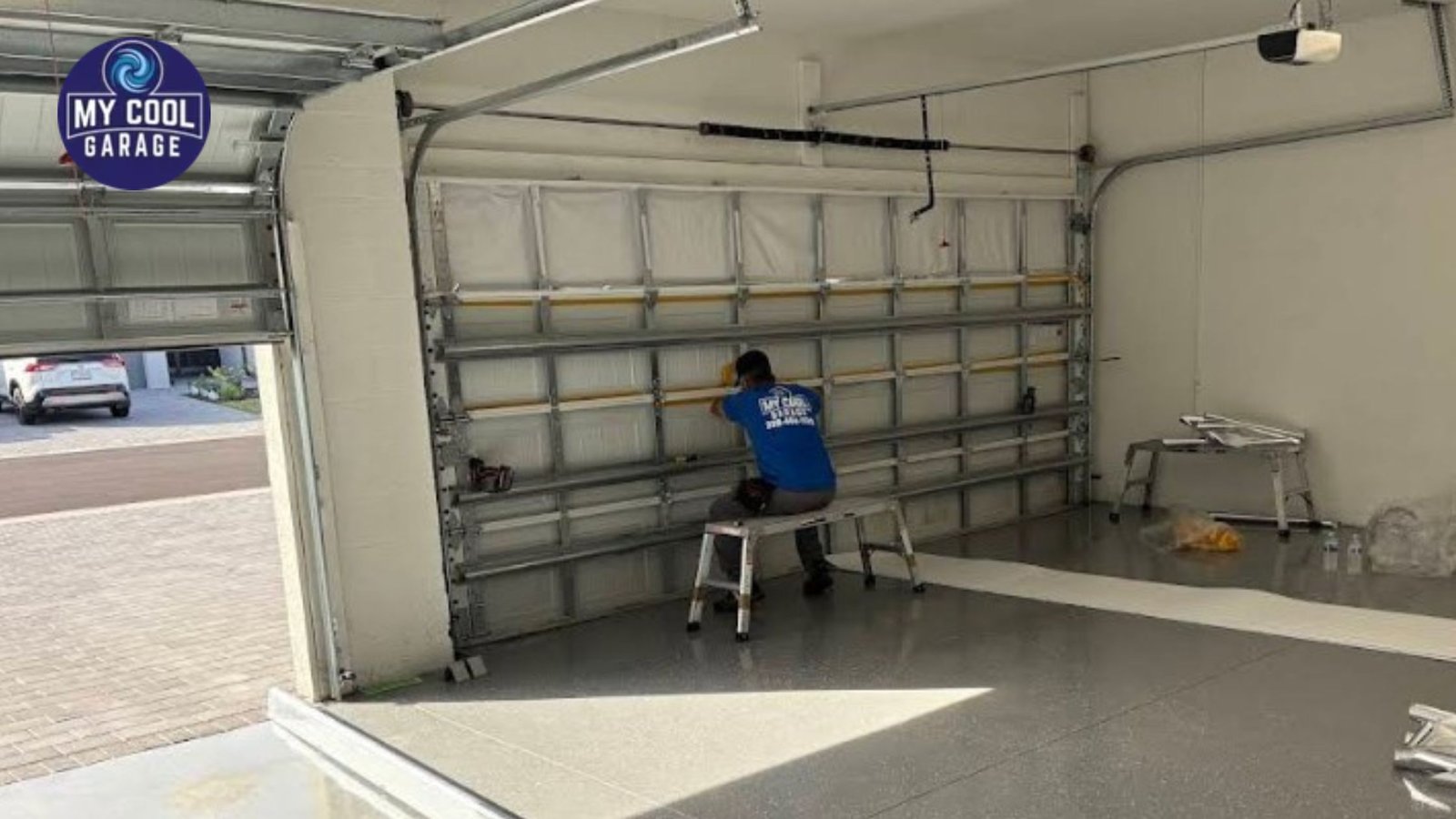Quick Overview
Florida homeowners often underestimate how much a garage door can affect comfort, energy costs, and even the value of a home. While non-insulated garage doors are cheaper upfront, insulated ones provide year-round comfort, lower energy bills, and long-term durability. If you want to know what makes insulated garage doors in Florida different from non-insulated ones, this blog is a must-read. This blog breaks down the key differences between them explaining why investing in insulation is one of the smartest choices for homeowners.
Understanding Florida’s Climate Challenges
Florida is famous for sunshine, but with it comes high heat and heavy humidity. Average summer temperatures reach the 90s, while humidity levels remain above 70%. Non-insulated garage doors allow that heat and moisture to flow freely into the garage, making the space unbearable. Insulated garage doors, however, create a protective barrier, keeping out heat and maintaining a more stable temperature.
What Is an Insulated Garage Door?
An insulated garage door is built with extra layers of material, often foam or polystyrene, sandwiched between steel or aluminum panels. This added layer blocks heat transfer, reduces noise, and strengthens the door. Homeowners in hot climates like Florida see immediate benefits in comfort and lower cooling costs.
What Is a Non-Insulated Garage Door?
A non-insulated garage door is typically a single layer of steel, wood, or aluminum. While it is cheaper to purchase and install, it provides little to no protection against heat or humidity. In Florida, these doors quickly become hot to the touch and allow the inside of the garage to heat up dramatically.
Main Differences Between Insulated and Non-Insulated Garage Doors
- Temperature control: Insulated doors keep garages cooler in summer.
- Durability: Insulated doors last longer and resist dents better.
- Noise reduction: Insulation helps block outside noise, which is useful in busy neighborhoods.
- Energy bills: Homes with insulated garage doors use less energy for cooling.
- Upfront cost: Non-insulated doors are cheaper, but they cost more in the long run due to higher energy use.
The Energy Efficiency Factor
The U.S. Department of Energy notes that about one-third of heat loss or gain in a home happens through poorly sealed or uninsulated areas. In Florida, where air conditioning is essential, this means an uninsulated garage door can raise energy bills significantly. Homeowners with insulated doors can cut cooling costs by up to 20%, saving hundreds of dollars each year.
Noise, Durability, and Comfort Levels
Besides energy efficiency, insulation also reduces outside noise. For homes near busy streets, insulated garage doors create a quieter indoor environment. They are also sturdier, resisting dents from weather, accidents, or daily use. Comfort is another major factor—an insulated garage makes it easier to use the space for storage, workouts, or hobbies without sweating in the summer heat.
Real Cost Comparisons and Savings
While a non-insulated garage door may save $200–$500 upfront, the long-term costs tell a different story. For example, a household spending $250 a month on electricity may save $40–$50 per month after switching to insulated garage doors. Over a few years, these savings cover the initial cost difference. In addition, an insulated door adds to the resale value of a home, making it a worthwhile investment.
Why Homeowners Should Think Long-Term
Non-insulated doors might seem like a good budget choice, but they often lead to higher cooling bills, faster wear and tear, and reduced comfort. Florida homeowners who plan to stay in their homes for years benefit greatly from insulated doors. Not only do they save money, but they also protect cars, tools, and storage items from the extreme heat and humidity.
Choosing the Right Service in Florida
If you are searching for garage door insulation near you, it’s important to find local experts who understand Florida’s unique climate. Professionals can recommend the best materials and insulation types that work in humid conditions. With proper installation, homeowners enjoy the full benefits of their investment without worrying about gaps, poor sealing, or early wear.
Conclusion and Call to Action
The difference between insulated and non-insulated garage doors in Florida comes down to comfort, energy efficiency, and long-term savings. While non-insulated options might seem affordable, they cost more in the long run and leave homeowners struggling with heat and humidity. Insulated garage doors are the smarter, future-focused choice.
My Cool Garage provides top-quality solutions for homeowners looking to upgrade to insulated garage doors in FL. Their trusted team delivers comfort, savings, and long-lasting performance for every home.
Related Reads
- The Ultimate Guide to Cricket Bat Labels in the UK
- Romantic Escapes: Couple-Friendly Day Trips from Toronto to Fall in Love With
- Soft Drinks Market Trends, Demand and Future Outlook 2033
- Betting Exchange ID: What It Is, How to Get One, and Why It Matters (2025 Guide)
- How to Maximise Rewards with a RuPay Credit Card



